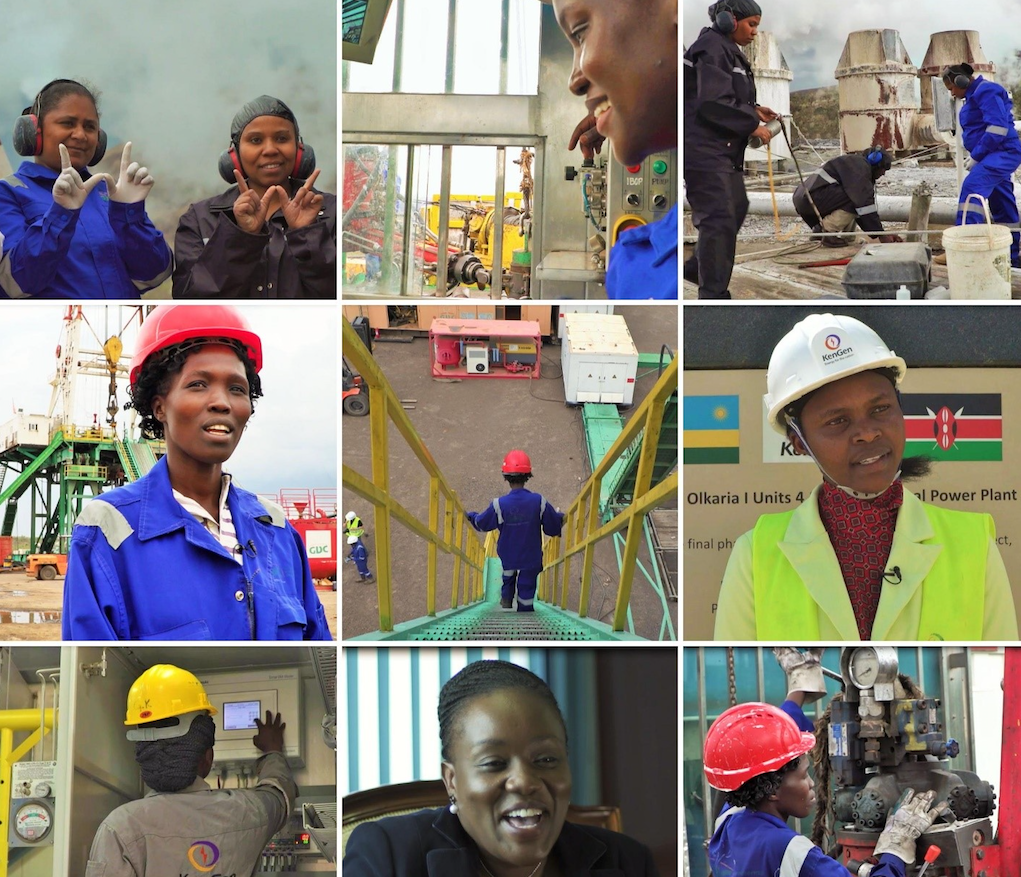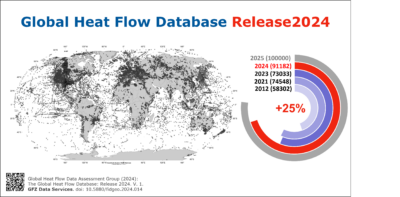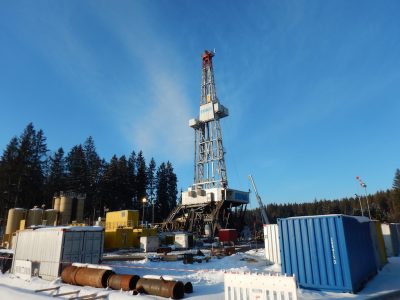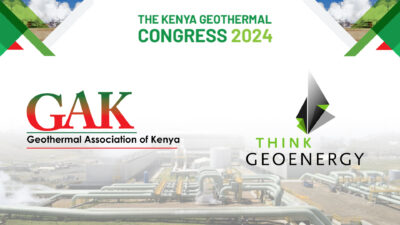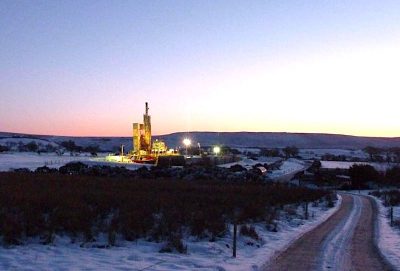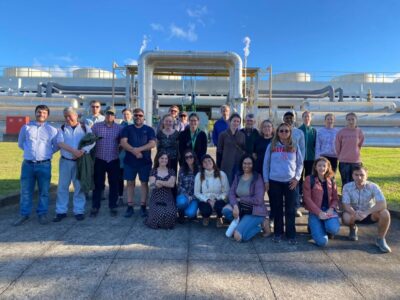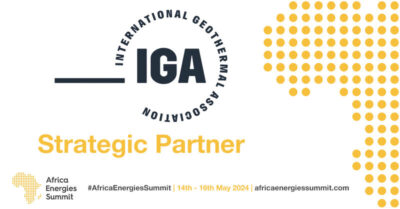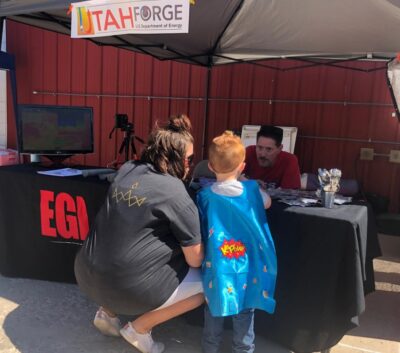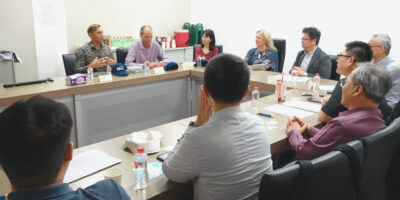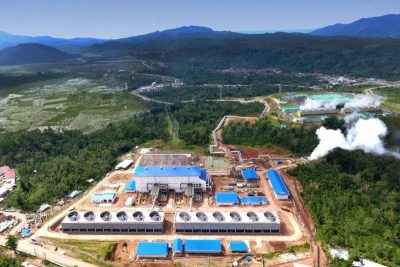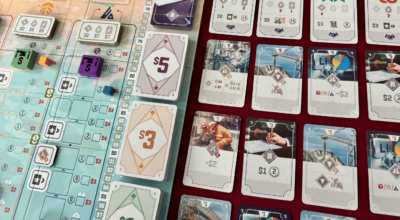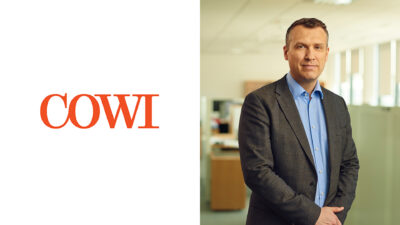Full Steam Ahead – Women in the Geothermal Industry, a cross-culture visual ethnography
A cross-cultural visual ethnography as a film project, Full Steam Ahead, is looking at women in the geothermal industry and the challenges they face. The project documents the professional lives and experiences of women working in the geothermal energy sector in five different countries.
Following on the filming project on women in the geothermal industry, we have covered it over the past 2 years or so. Now the collaboration between the Women in Geothermal (WING), the film makers and the UNU Gender Studies and Training Program in Iceland, has published a paper.
The paper was released in conjunction with the 7th African Rift Geothermal Conference last week in Kigali, Rwanda.
In the abstract, the authors provide a good overview on what the paper is about, namely a cross-cultural visual ethnography which investigates the status of women in geothermal industries in countries around the world.
The issues addressed in this paper arise from a project that focuses on the position and status of these women, the challenges and obstacles they face, and what is being and has been done to address them. The paper also addresses the seemingly global question of why so few women enter the field of geothermal science, why the retention rate of women working in the field is low, and what can be done to level the playing field.
“Full Steam Ahead” focuses on gender inequality within the geothermal workplace in countries where women’s roles and state of gender equality for women in the workplace is very different, looking at women working within the geothermal industry in Iceland, Kenya, Ethiopia, Japan, Mexico, New Zealand and the USA.
Our focus is on the changes that have taken place within the industry in the past 50 years, both positive and negative. Questions arise about how much culture, tradition and lack of a strong women’s movement slows down progress and change towards gender equality in the workplace. Steam heat from the earth has been used by women for centuries for laundry and cooking.
Today, women can work as geothermal engineers designing direct-use projects, choosing to work with geothermal energy as a sustainable energy source for their communities. Yet women remain a tiny percentage of the geothermal workforce, everywhere in the World.
In the paper, the authors seek to answer the questions: How can Icelandic companies promote gender equality through their work in countries lacking gender equality laws? How can activities like UNESCO’s “Science Camp for Girls” in Kenya influence girls’ STEM education in Iceland? How are support and network organizations such as WinG International (Women in Geothermal Energy) which primarily reach out through social media and meetings at international conferences – such as ARGEO – strengthening women’s assertions of workplace equality in different cultures, or not? What forms does female solidarity take and what strategies do women choose to use in seeking leadership positions or promotions? How do male-dominated geothermal companies make room for women “at the top”? Why are women in geothermal interested in working in direct use and social impact strategies? In this visual ethnography, we are filming women at their work, conferences, and in classrooms as they negotiate equality, represent companies and through their work they are breaking down gender barriers.
The project sets out to document the professional lives and experiences of women working in the geothermal energy sector in five different countries: Iceland, Kenya, Ethiopia, Japan and New Zealand. This is social science research based on audio-visual qualitative data in the forms of interviews and video footage.
The Full Steam Ahead film project is described as a work in progress set out to answer all the questions mentioned above. In the paper, the group shares short stories on the women that were interviewed in Iceland, in Kenya, and Japan (with changed names though).
The paper describes some emerging themes, that are common on the role of women in the geothermal sector:
- The difficulty of women being sent for higher studies that would qualify them for work in the geothermal sector;
- The popular sense that women are not meant to study STEM subjects;
- The critical importance of support from their families for women to go for higher studies, take up STEM subjects, and work in a field like the geothermal industry;
- The familial pressure for women to choose marriage over career;
- The pressure on women to balance their time with their families with the time spent working;
- The difficulties faced by women with children, especially, when it comes to going out of town on work;
- The challenges women face at work in terms of infrastructure provided for women;
- The harassment and discrimination that women face in their place of work in terms of sexual harassment as well as being overlooked for promotions and other opportunities to further their careers.
- The critical importance of support from their families for women to go for higher studies, take up STEM subjects, and work in field like the geothermal industry.
So while the work on the film project is still going on, the paper provides a great overview on some key elements.
Namely that it is very important for us to listen, and give visibility to, women from all walks of life who are not the elite of society but ordinary women with extraordinary lives. These are the women whose voices and stories need to get told and reach broader audiences. Theirs are stories of courage, leadership, and the power of women as they work at breaking down the old boy’s club and the privileges that men have given themselves over centuries of gender inequality, without conceiving of a time when they would have to share these privileges. We realise that there is no easy way to ensure that such a sharing of power happens. We see, also, that cultural and historical differences amongst the different countries that we have taken into account in this project make it very difficult for us, or anyone else, to make simple generalisations or to find single solutions that can be equally effective across these cultures and histories. Instead, while affirming the many issues and needs that are common to us all and which bind us into a sisterhood, our research and documentation has reaffirmed how important it is for us to allow each woman to reflect on her life, and see how she sees the future ahead when it comes to herself, and her sense of women’s rights. The path to equality is an emotional journey of women’s lives from different countries and cultures; on this path, their own words will enlighten and help create understanding between all of us no matter who we are and where we come from.
We thank Susan Muska for sharing the paper with ThinkGeoEnergy. We assume the paper will be made public in the coming weeks.
